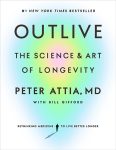
Review by Kevin Brown
Brotherless Night, V.V. Ganeshananthan’s Women’s-Prize-winning novel, clearly portrays the horrors of the Sri Lankan civil war of the 1980s and following. Sashi is a teenager when the book opens, and the book follows her over the next decade or so as the civil war affects every aspect of her life. She has four brothers, all of whom have some relationship to the war; the title of the novel, in fact, refers to the first night she spent without at least one of her brothers present, and it represents the beginning of the war.
Sashi works in a field hospital for the Tamil rebels, mainly due to the request of K., a childhood friend she would have married, if not for the war. Ganeshananthan portrays the horrific actions of the Sri Lankan and Indian government armies, but she also clearly conveys what the Tamil rebels do, not only to those government soldiers, but also to the civilian population and other rebel groups.
No entity is innocent here, and Sashi reflects that complexity. Though she disagrees with the Tamil Tigers’ actions, she works in the field hospital to try to make sure nobody dies for lack of medical care. She also works to expose the immoral actions they have taken. Ganeshananthan draws heavily on research, even basing one of Sashi’s professors on a real professor and activist, but it is the humanizing portrayal of the wide range of characters that gives this novel its power. Her care for her characters reflects the suffering so many endured throughout the years of the war, showing the reader just how much so many have lost, while their care for each other reveals how much humanity remains.
Brotherless Night by V.V. Ganeshananthan. Random House, January 2024.
Reviewer bio: Kevin Brown has published three books of poetry: Liturgical Calendar: Poems (Wipf and Stock); A Lexicon of Lost Words (winner of the Violet Reed Haas Prize for Poetry, Snake Nation Press); and Exit Lines (Plain View Press). He also has a memoir, Another Way: Finding Faith, Then Finding It Again, and a book of scholarship, They Love to Tell the Stories: Five Contemporary Novelists Take on the Gospels. Twitter @kevinbrownwrites




